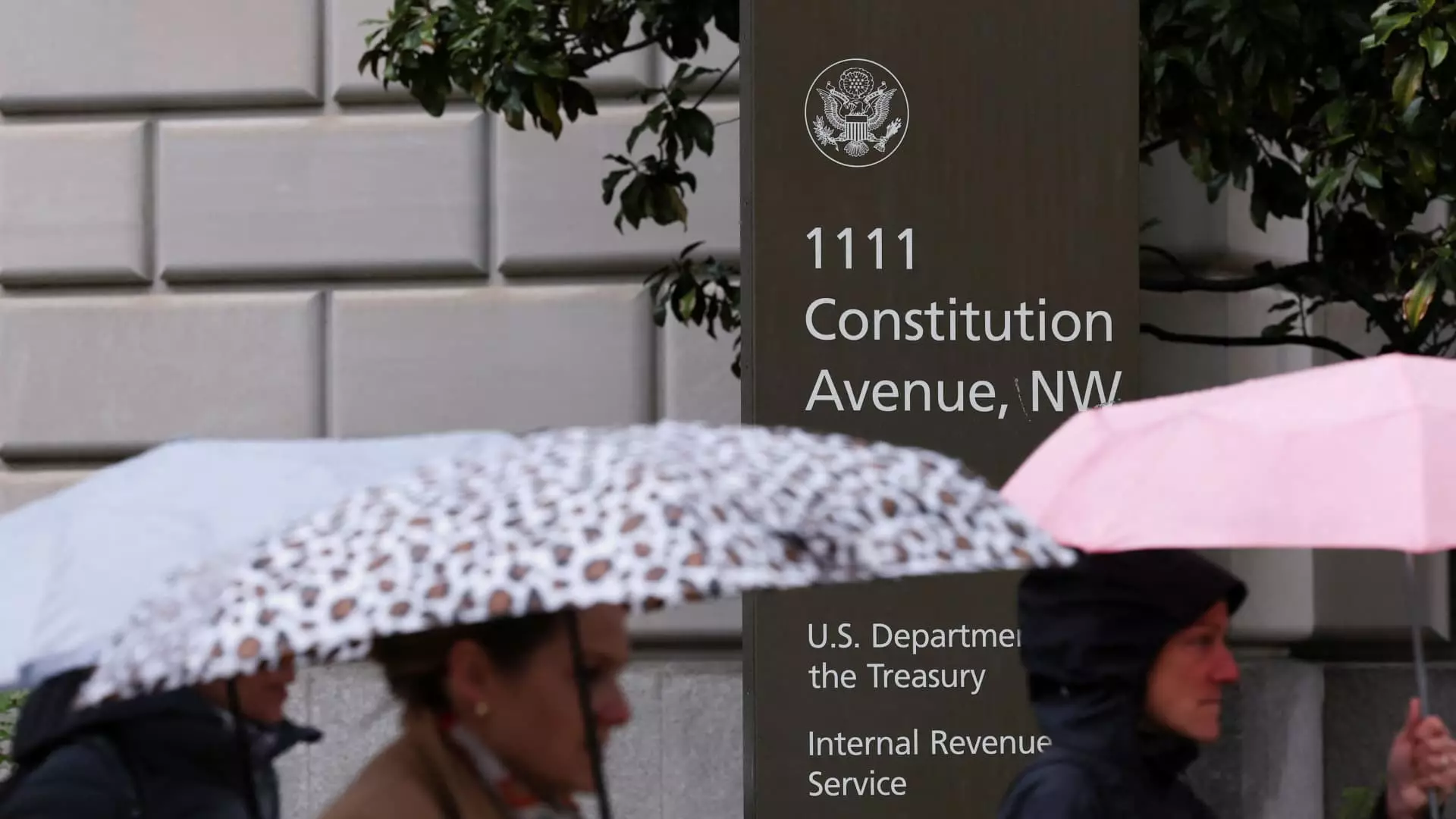With $80 billion earmarked for the IRS from Congress in 2024, the expectation was not just for growth, but for an intense crackdown on high-net-worth individuals and LLCs that exploit the complex nuances of tax law. Enter Wesley Stanovsek, an ideal candidate for the IRS with his background in S corporations, trusts, and partnerships. Hailing from Columbus, Ohio, he was a fresh recruit in the IRS’s High Wealth division, which was central to the agency’s ambitious goal of increasing audit rates among the wealthy. Yet, after less than a year, Stanovsek and a host of others were unceremoniously terminated, leaving a void in an already floundering agency.
The ramifications are immediate and severe. The loss of Stanovsek, who was juggling multimillion-dollar cases involving high-profile clients, signals a broader dismantling of IRS capabilities. With the IRS on track to lose a staggering third of its workforce, the balance of power unequivocally tips in favor of the wealthy. Simply put, the diminishing audit capacity translates to fewer taxpayer investigations and a higher likelihood that tax violations will go unchecked.
Tax Avoidance Goes Viral: Is a Free-for-All Looming?
In a post-Stanovsek IRS world, wealthy taxpayers and their counselors seem to be walking a tightrope. On one hand, there’s uncertainty as to whether filing tax returns is even necessary. Pundits might argue that with fewer agents around, the risks of drawing the IRS’s attention diminish significantly. However, tax professionals strongly advise against ditching returns entirely. The IRS maintains a vast database that can flag missing returns and trigger audits. The real worry, however, lies in the environment that these cuts are fostering—one ripe for creative tax evasion strategies.
Kathleen Pakenham, a tax attorney, starkly warned that such staff reductions echo the agency’s drastic budget cuts in the late ’90s. Those cuts birthed convoluted tax schemes that would later be deemed illegal. The current cuts, she cautions, could cultivate a new generation of shady tax strategies that thrive in the shadows cast by dwindling IRS resources. A recent Yale Budget Lab study indicates that steadfast reductions in IRS staffing could lead to a staggering loss of $160 billion in tax revenue over the next decade—an already concerning scenario compounded by other projections suggesting immediate losses could peak at over $500 billion this year alone.
The Chilling Effect of Unresolved Audits
Imagine facing an IRS audit involving an $8 million tax claim but witnessing the process draw out indefinitely due to a lack of IRS personnel. Taxpayer Robert Romashko is juggling such a nightmare. His case, typically requiring swift resolution, now flounders in limbo, exacerbating the apprehension that envelops wealthy individuals trying to navigate the tax landscape. With audit resolution timelines stretching dangerously close to the statute of limitations, the repercussions of an unresolved audit are disastrous.
Clients aiming to sell businesses burdened with tax liens face another set of hurdles, as Romashko relays the frustration of failing to hear back from the IRS. The notion that the IRS might impose automatic penalties for overdue paperwork due to personnel shortages adds another layer of dread. The absence of human agents who can address these issues directly means taxpayers may soon find themselves ensnared in complex bureaucratic snares, losing control over their financial futures.
AI: A Double-Edged Sword in Tax Collection
While Treasury Secretary Scott Bessent insists that the integration of AI is positioned to enhance IRS efficiency in monitoring and collections, skepticism looms large among tax professionals. Yes, AI has the potential to spot discrepancies with unprecedented accuracy, but its limitations cannot be ignored. The nuanced dialogues and critical thinking required during audits hinge on human insight, something a machine simply cannot replicate.
Pakenham alluded to a significant transformation in the audit landscape due to AI. Instead of an inquisitive auditor rummaging through facts, AI wields an oppressive “X-ray vision” that predefines areas of interest. At the end of the day, getting to the heart of an individual’s tax scenario takes skilled human intervention—a luxury that the IRS may soon lack if current trends continue. The danger lies in over-reliance on technology, potentially leading to wrongful prescriptive actions against taxpayers based merely on algorithmic conclusions.
The burgeoning divide between unaffordable strategic tax plans and the IRS’s declining enforcement could spell disaster, not only for tax compliance but for the equitable distribution of tax burdens nationwide. The situation calls for immediate attention, lest we allow the wealthiest members of society to slip through the cracks in an outmoded system, all the while waiting to see just how high the costs of oversight neglect will rise for the American taxpayer.

